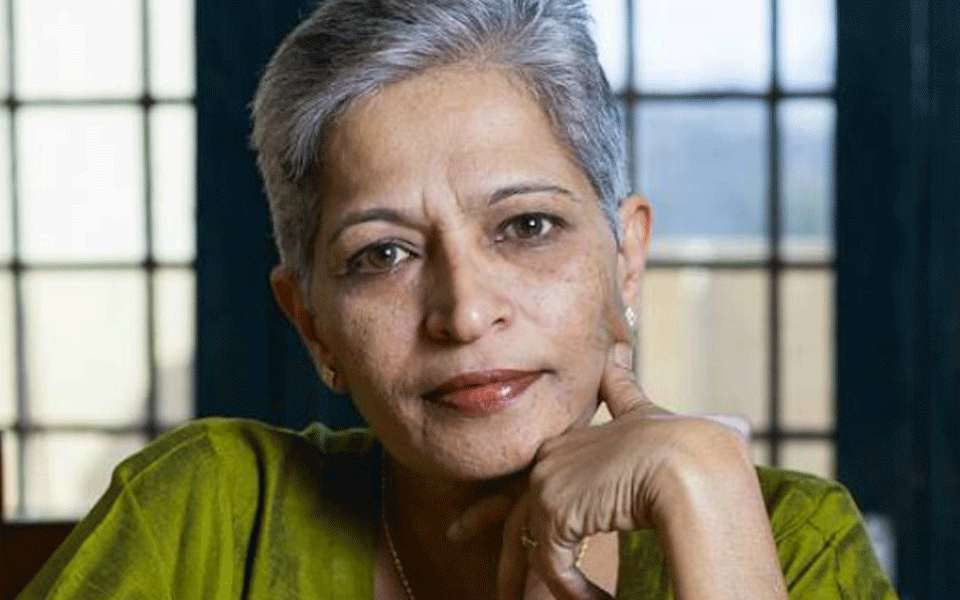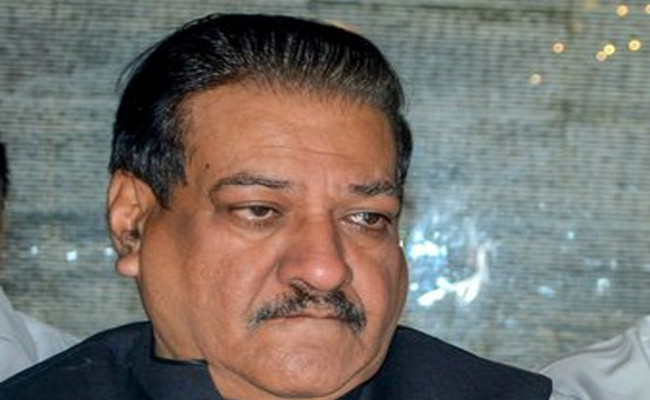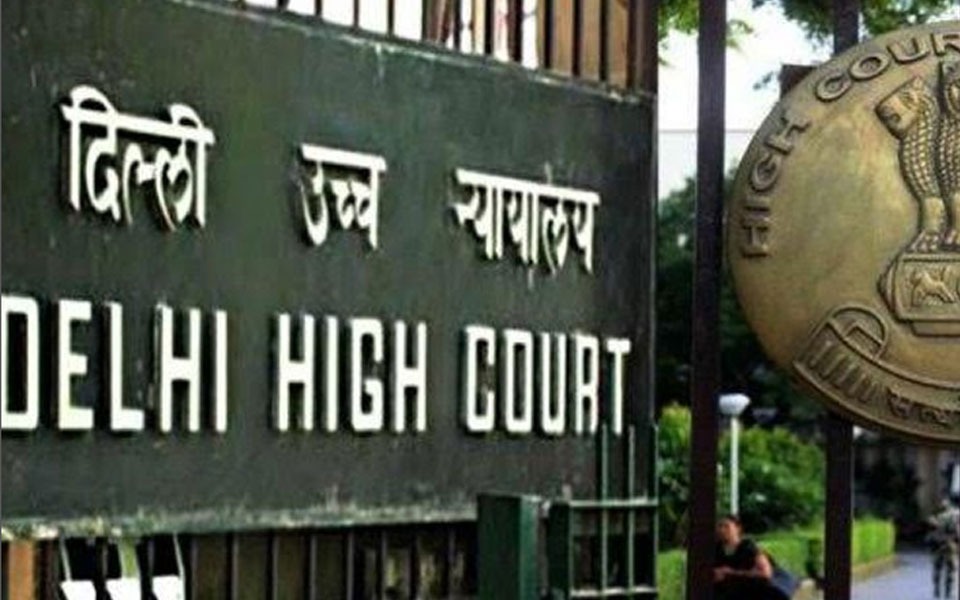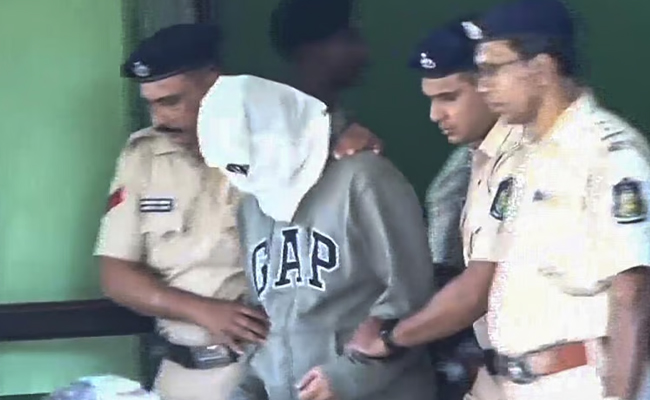Maharashtra, August 26: The SIT now believes Gondhalekar, the owner of a design firm, was one of the “key persons” in the Lankesh murder. Sources said that 10 days after the killing, he had returned to Bengaluru to retrieve the guns used in the murder.
The Karnataka Police claims to have found that one of those arrested by the Maharashtra ATS in connection with plotting terror attacks in the state was present in the vicinity of journalist Gauri Lankesh’s home on the day she was murdered, nearly a year ago. A Special Investigation Team (SIT) of the Karnataka Police, probing the September 5, 2017, murder, recently returned to CCTV footage from cameras located near Lankesh’s home, in Rajarajeshwari Nagar area of Bengaluru, and reportedly found that a man resembling Sudhanva Gondhalekar was present there four hours before the killing.
Gondhalekar, 39, was arrested by the Maharashtra ATS on August 10. Believed to be associated with the radical right-wing Shri Shivpratishthan Hindustan and the Hindu Janajagruti Samiti (HJS, an affiliate of the Sanatan Sanstha), Gondhalekar’s role is being investigated by the ATS in an alleged plot to carry out blasts in five Maharashtra cities. Confirming CCTV footage showing a person resembling Gondhalekar, an SIT official said, “We have sent it for analysis.” The SIT is likely to seek custody of Gondhalekar when his police custody in Maharashtra comes to an end. The SIT believes Gondhalekar and possibly an accomplice made a round of Lankesh’s home to ensure that the murder plan was on track, since a previous attempt to kill the journalist days earlier had failed.
The SIT now believes Gondhalekar, the owner of a design firm, was one of the “key persons” in the Lankesh murder. Sources said that 10 days after the killing, he had returned to Bengaluru to retrieve the guns used in the murder. These are alleged to have been stashed in a safe house, said to have been provided by a civil contractor from the Kunigal region of Karnataka, H L Suresh. The latter, also an activist of the HJS, is described as a “seeker” in a 2008 article by the HJS on a series of anti-terrorism exhibitions conducted by it, and is under arrest.
The SIT believes Gondhalekar was also closely associated with Amol Kale, 37, a Pune-based former HJS convenor, who is alleged to be the head of the covert group that carried out Lankesh’s murder. Kale was arrested on May 31, and the SIT claims to have found links between him and Gondhalekar through call records of Kale. Gondhalekar reportedly also appears in a diary Kale maintained, often in code, on the operations he was carrying out in Karnataka. SIT sources said Gondhalekar was referred to as “Pandey” and “Gujjar” in Kale’s diary and during his communications with gang members.
Gondhalekar could lead investigators to two guns reportedly used by the group to carry out four murders since 2013, sources said, including Lankesh’s. The SIT is hoping that the 7.65 mm country-made pistol used to kill the journalist could be part of the arms allegedly stockpiled by Gondhalekar, as claimed by the Maharashtra ATS. In a press release on August 11, the ATS had said it had seized 16 country-made pistols from multiple locations on the basis of Gondhalekar’s confession. Gondhalekar may have also provided shelter to another key suspect in the Lankesh murder case, Sujeet Kumar alias Praveen, 38, in Satara, at a friend’s place. Police had been looking for Sujeet, a former HJS activist, after making the first arrest in the murder case, of K T Naveen Kumar, in March this year. Sujeet is also under arrest now.
Courtesy: indianexpress.com
Let the Truth be known. If you read VB and like VB, please be a VB Supporter and Help us deliver the Truth to one and all.
Mumbai (PTI): Despite facing criticism, senior Congress leader Prithviraj Chavan on Wednesday stood by his controversial comments that India faced a "total defeat" in aerial fight with Pakistan on the first day of Operation Sindoor on May 7.
The former Union minister refused to apologise for his comments on the Indian military operation against terror hubs in Pakistan and PoK in aftermath of massacre of tourists at Pahalgam in Jammu and Kashmir in April.
Talking to reporters in Pune on Tuesday, Chavan claimed India faced a "total defeat in the aerial fight (with Pakistan) on May 7 which lasted for half-an-hour".
"One may believe this or not. After that the Indian Air Force got grounded and not a single aircraft took flight that day.... be it Gwalior, Bhatinda or Sirsa, there was a possibility of aircraft being shot down, so our complete Air Force was grounded," the former Maharashtra chief minister had said.
Hitting out at Chavan, Maharashtra Deputy Chief Minister Eknath Shinde accused the Congress of speaking the language of Pakistan. He said questioning the military action was akin to demoralising the morale of armed forces.
ALSO READ: New safety wristbands launched for children at Makkah’s Grand Mosque
"The criticism does not stem from the love of the nation, but love for Pakistan," said the chief leader of the Shiv Sena, a key constituent of the BJP-led NDA.
Chavan, however, remained defiant.
"There is no question of apologising. The Constitution has given me the right to ask questions," the Congress veteran asserted.
Chavan also questioned the need of having a 12-lakh strong Army when future wars will be about aerial combats and missiles. "During Operation Sindoor we saw that there was no movement of the Army even for a kilometre," he had said.
BJP Lok Sabha MP and spokesperson Sambit Patra said Chavan's remarks are loaded with sedition.
"He (Chavan) has refused to apologise. The Indian armed forces struck 100 kms inside the Pakistan territory and destroyed 11 air strips (of the Pakistani Air Force). He made remarks that the Indian Army did not even move an inch (during the military operation). This is nothing but a statement full of sedition, a statement of a traitor," Patra said, lashing out at the Congress leader.
The BJP spokesperson maintained the Congress appears to be standing with Chavan and alleged the Opposition party is playing into foreign hands.
Congress leaders Sonia Gandhi and Priyanka Gandhi Vadra should apologise for it, he added.
Union minister Giriraj Singh of the BJP insisted it was not right to devalue the valour of Indian armed forces.
Samajwadi Party MP Virendra Singh suggested that wherever armed forces are concerned, every Indian should be mindful of statements they make and ensure their comments do not demoralise the military.
Operation Sindoor was a result of "mistakes of politicians", he claimed.
TDP MP Krishna Devraylu said after the poll defeat in Bihar, the Congress is rattled and their leaders have been talking absurdly.
"Chavan's remarks are a prime example of this. This kind of disrespect to our armed forces is not necessary. If the Congress is angry with the NDA, it should show it in a different way and not drag armed forces into it," Devraylu opined.
AAP MP Ashok Mittal said such statements should not be made by any senior politician, especially by someone who has been a former chief minister.
The Indian armed forces registered a strong victory and destroyed terror launchpads in Pakistan during Operation Sindoor, Mittal added.





